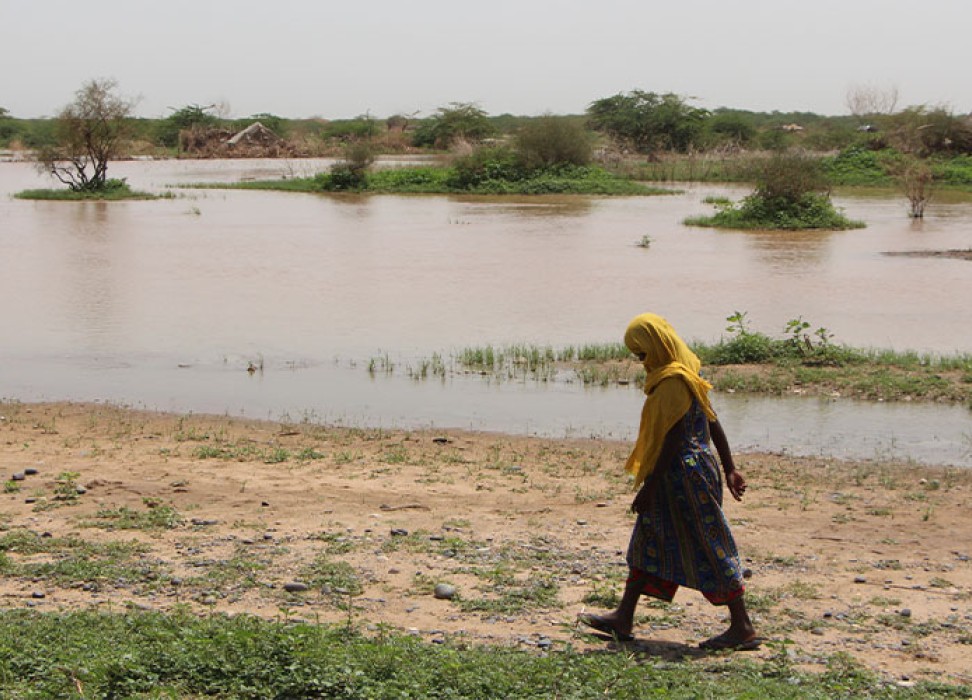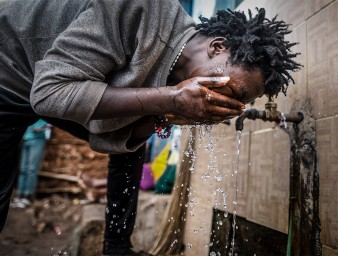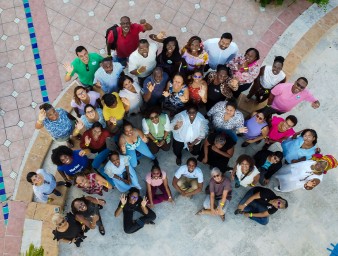Report: How climate change affects the human rights of Sahel region migrants
11 November 2021

The human rights impacts of climate change-related migration are at the centre of a new UN Human Rights report, released this week at the UN Climate Change Conference (COP26).
Focusing on the Sahel in Africa – a region encompassing Burkina Faso, Cameroon, Chad, Guinea, Mali, Mauritania, Niger, Nigeria, Senegal and The Gambia - the report highlights some of the key human rights challenges being faced due to the interconnection of climate change and migration, and calls for prevention and mitigation measures.
“Throughout human history, individuals, families, and communities have used migration as a strategy for adapting to changing environmental conditions,” said UN High Commissioner for Human Rights Michelle Bachelet, when presenting the report. “But a rapidly heating climate requires new solutions to ensure that such migration is a choice and not a necessity.”
As the global climate crisis unfolds, people living in the Sahel region are directly experiencing its adverse effects when they migrate and, consequently, on their dignity and human rights.
Temperatures in the region are rising 1.5 times faster than the global average, according to the report. Rainfall is erratic and wet seasons are shrinking, yet flooding is frequent.
Livelihoods are disappearing as harvests reduce and pastureland is lost. Those living in cities, particularly in coastal areas, are also at risk, with rising sea levels and increasing floods.
No longer left with any choice, many people are being forced to move. Others may not even have the option of moving, making a vulnerable situation even worse.
According to Adenike Oladosu, a climate and women’s rights activist from Nigeria, and one of the many stakeholders UN Human Rights is consulting with in the Sahel, migration is no longer a simple strategy that people can use to adapt to changing circumstances.
“Forced migration due to climate change is directly affecting our peace and security,” she said.
Oladosu highlighted increasing clashes between nomadic herders and farmers over land use and ownership, particularly in the Lake Chad region. The flow-on effects of this are many, she said, and include a significant impact on the human rights of women and girls.
“Women’s and girls’ empowerment is being destroyed,” she said. “They are prone to sexual abuse, and child marriage is now seen as a strategy by some to cope with the crisis caused by the changing climate. On top of that, girls and young women are dropping out of school, and they are losing their livelihoods.”
For Oladosu, environmental and climate justice encompasses more than just climate action. It is about taking concrete steps to ensure “social justice, gender justice and equality.”
The human rights impacts of climate change
The report outlines some of the ‘numerous, multi-faceted and complex’ impacts of climate change on human rights in the Sahel, such as the rights to life, health, housing, food, water and sanitation, which are all at risk from slow and sudden-onset disasters.
The majority of people’s livelihoods in the Sahel region rely on agriculture, pastoralism or fishing, and these livelihoods are deeply affected by climate change. For example, scientists predict that in Mali climate change could eventually cause a 30-40 per cent drop in agricultural capacity. Off the coast of Senegal, fish stocks dropped by 80 per cent in 2017 alone.
In Nigeria, notes Oladosu, the decline of agricultural production is a “weapon against peace.”
Climate change is also having significant impacts on the rights to life and health in the Sahel, says the report. Rising sea levels in coastal areas increase the risk of mortality, injuries, physical ill-health, and mental health conditions. Flooding and heavy rainfall may heighten vulnerability to water or insect-borne diseases, while dry seasons and drought can increase the potential for people to consume unsafe water.
In some cases, people choose to leave their homes to avoid these impacts. However, they may not have safe pathways available, a plan or adequate support, and they may face increased risks during their journey and when they arrive.
Others may have no choice but to stay, and they become even more exposed to human rights threats.
Prevention and mitigation critical
As the report notes, the human rights consequences of climate change and climate change-related migration in the Sahel are not hypothetical or limited to the future. They are happening now and they require immediate and ambitious action.
“There is an urgent need for human rights-based, community led adaptation and mitigation measures in the Sahel, including pathways that enable regular migration as a climate change adaptation strategy,” said Bachelet.
Through engaging with migrants, local communities, as well as with a new series of comic stories, UN Human Rights is seeking to spotlight the importance of such measures.
“Local communities, including migrants, should be at the centre of building solutions towards a more hopeful future,” Bachelet emphasised.
UN Human Rights is calling on all States, including those in the Sahel, as well as regional stakeholders and the international community, to take action on the current and future human rights impacts of climate change.
Failure to take meaningful action, according to the report, may itself be a breach of human rights obligations.
“It is clear that when human rights are affected by climate change, States have an obligation to act – both individually and in cooperation -- to either prevent harm when they can, or to remedy it when they cannot,” said Bachelet.
“Basic principles of justice and equity require that those countries which have contributed the most to climate change support countries most affected, like those in the Sahel, to deploy the policies, resources and technologies they need to mitigate and adapt to this crisis.”



